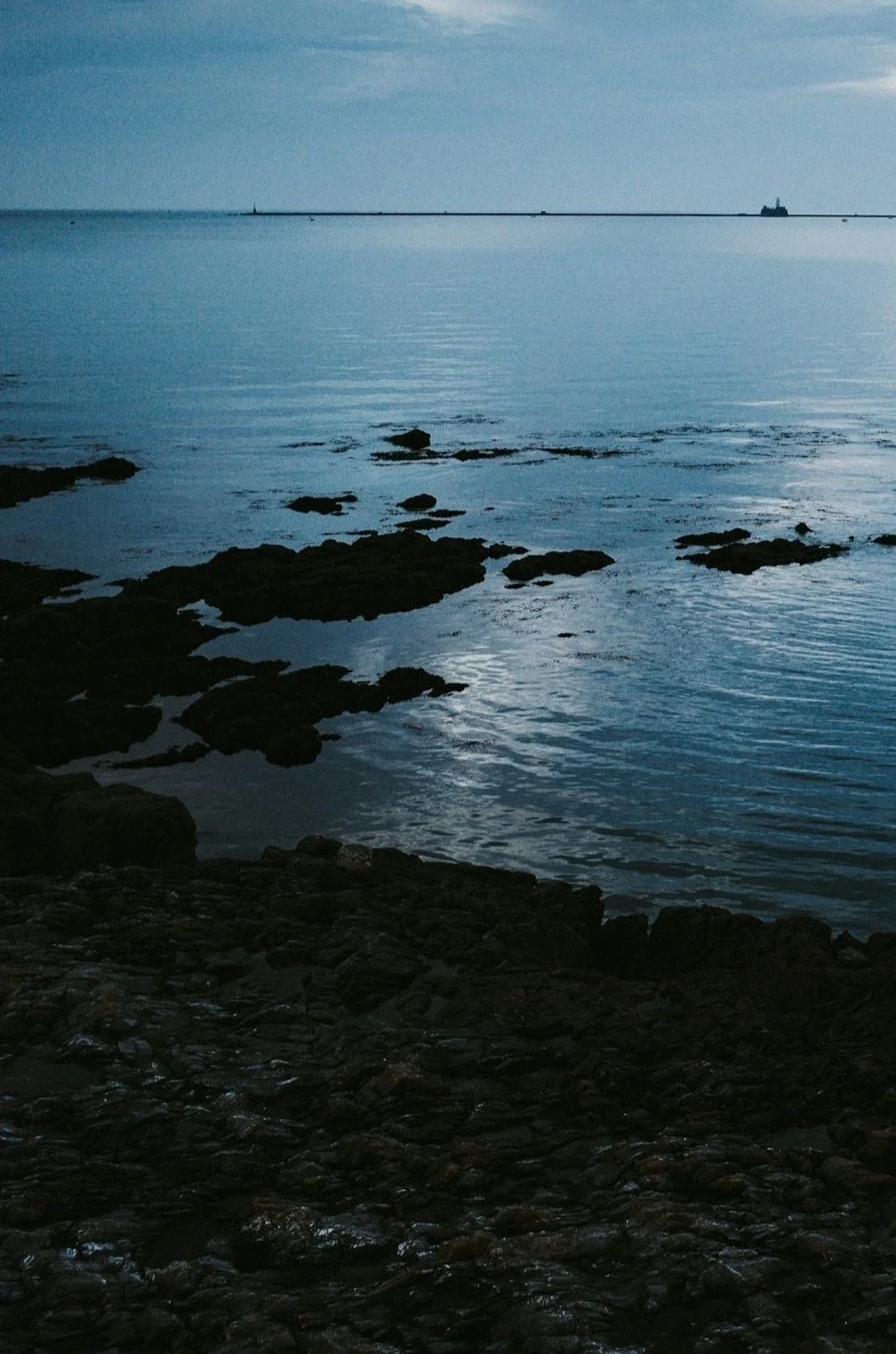Rib and Mouth
Image by Jill Dimond via Unsplash
Written by Daniel Birch
I stand in the precise spot where it happened, exactly two decades later: the edge of an estuary, all sewage and cigarette-packet green water that curves like a sickly grin. The meander seems the same as it did all those years ago, sludging a few miles down the coast from Plymouth, bending and barging awkwardly around the rolling fields and prosaic villages. Its shallow, silted sides are still dotted with the half-sunken carcasses of abandoned little boats; the barbed remains of their hulls jut out the water's surface like abstract sculptures. I see the same seaside houses, old shacks and cottages as before, which litter the surrounding edge of land in scant collections. I’ve always thought that this estuary resembles an incomplete dentition of teeth: the muddy shore is pink and gummy, and the buildings sit above it like yellowed canines and rotting molars. The mouth yawns at me, and I think again about the moment I was last here—twenty-six years ago to this day.
*
I only found the corpse because it was a Tuesday morning, which was my turn to walk the dog. It was almost unrecognisable from exposure—I wondered for just a second if it could be a strangely pale chunk of driftwood. The dog was sniffing it, so I told her to stop, and I was ready to move on when I saw that the thing was wearing ragged clothes. All at once I was hit with the acrid stench of putrefaction. With that smell arrived a sense of dread, dropping from the back of my neck to the depth of my stomach. It was a person, I realised. This thing once smiled, cried, danced, lived. It might’ve walked on beaches, like I did in that moment. I cannot escape that fact—that one day I will become just like it. I will transform from a person into an object, from a human being into a hunk of decomposing matter which sinks slowly into the dirt beneath it.
I don’t remember calling the police, but I must have, because within an hour the shore transformed into a cobweb of fluorescent tape, occupied by a colony of uniformed officials; places cordoned off here, spots marked for evidence; don’t walk there please, sir. Their scuttling reminded me of confused ants, the kind which march around aimlessly after damage is done to their nest. It was an attempt, I now understand, to apply some order to an inherently chaotic moment. I did my interview; they listened to my useless mutterings, took attentive notes, nodded solemnly and sympathetically. Back then, they seemed so unaffected to me, so well put together. But I know now that the sorrow reached them too, eventually. Some cried in the solitude of their beds, that very night. Others, I imagine, lost their fighting spirit in decades to come, years of ignored trauma finally collapsing in on them. Even those who push it back forever, truth follows them still: in restless dreams, in bad drinking habits, the slight trembling of hands and their cold, disaffected gazes.
Cases like this one are doomed from the start. Forensics have little to do: nature’s washed away any DNA or fingerprints. So after wasted hours of flash photos, meticulous searching and shouted instructions, the officials packed their findings and then left—the body went with them. I knew already at that moment that the perpetrator would never be found. Sometimes I picture the investigation in my head; how the case might’ve chased its tail for a time, growing colder and weaker. Soon enough it probably became a file, stored away and collecting dust in the dark. That’s where it’s stayed all this time. And somewhere else—I know it—there’s a missing person report, on it the answer to who became that body. The two files will never meet, the woman will never be identified.
Twenty-six years since that day, and who remembers but me? There’s no forgetting that moment: her corpse laid out ahead of me, waiting. Jawless mouth hanging wide open, a gaping void; ribs exposed like four fingers of a mottled hand. The image is burnt into my mind. These days, I find all my experiences and all memories passing by me, quietly, never leaving any impression on my soul. All experiences but one. The essence of who I am has stayed at this same location, looking out at the mouth of the estuary, for twenty-six years. I have been here, always and forever. I watched, and this is what happened:
Nature took its course. Gradually the crime scene morphed. In the days after I discovered the body, the slight imprint caused by its waterlogged weight became flat again; smoothened by the gentle but immutable lapping of water. Surrounding this near-imperceivable dip was a circle of thin poles connected by fluorescent police tape. Already these poles began to sink into the sediment. Twisting, inclining, the circle of tape warped into abstract shapes as it descended. As the seasoned rolled into each other, wind, rain, and hail battered relentlessly at the scene. In a span of years all the police tape was gone, caught adrift in the water. Splitting apart, most of it sank into the estuary’s bed, snaking down to join a necropolis of unknown and forgotten things. Some, however, caught against the ribs of those half-sunken hulls, and desperately clinging, fought to stay close to the surface and the light.
Edited by Nico Horton

